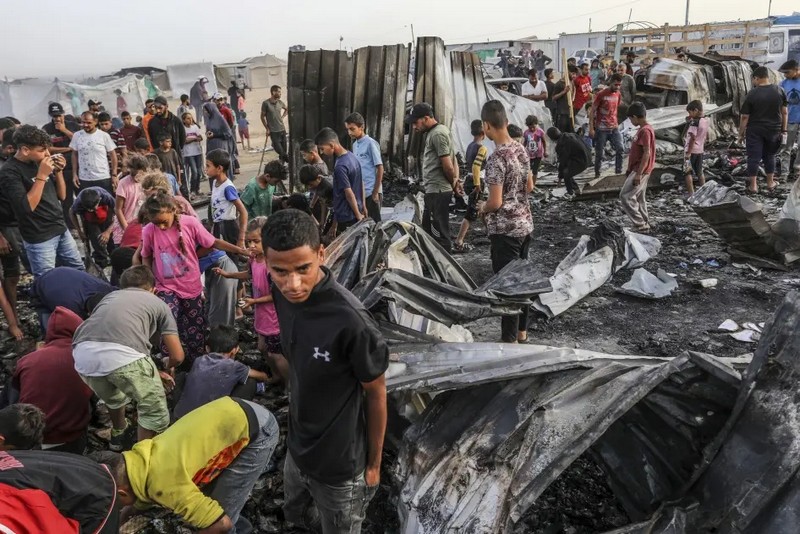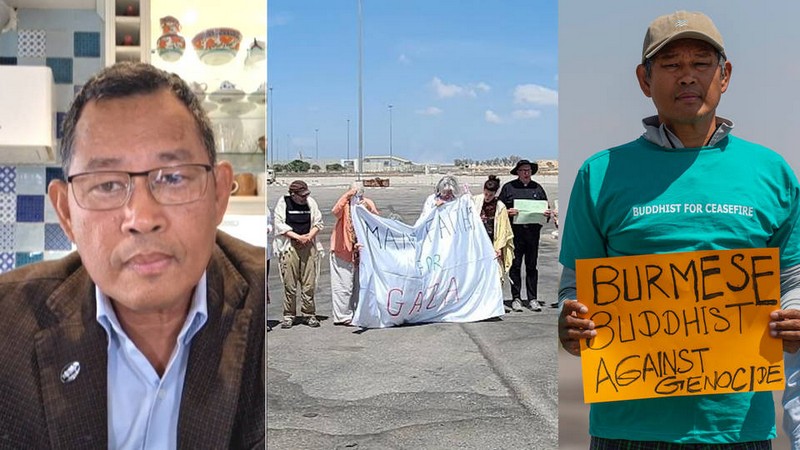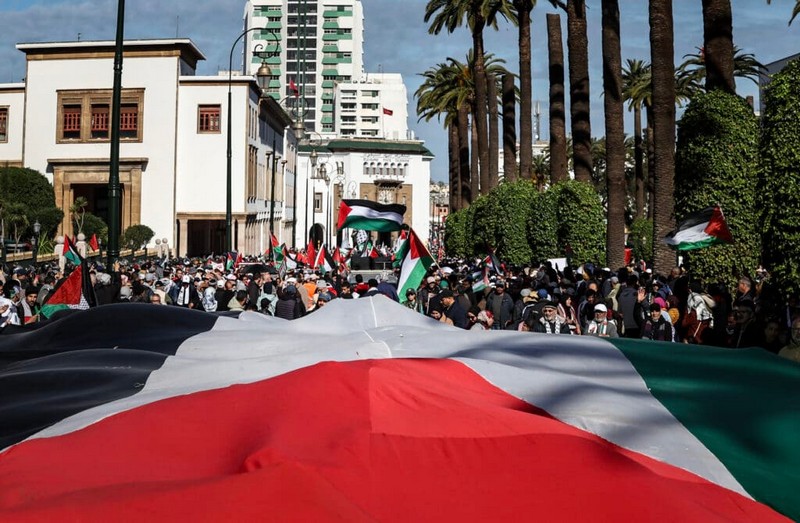Over the last eighteen months the world has witnessed undiluted militarised cruelty targeting the entire population and the supportive natural habitat of Gaza – with not so much as an ounce of mercy or compassion, let alone justice, or sensitivity to issues of ecological viability.
No one has been spared in this onslaught: not civilians, not children, women or the elderly, not humanitarian workers or UN personnel overseeing the distribution of aid, not homes, schools, places of worship, or hospitals.
No logic can begin to explain or justify this genocidal policy of indiscriminate maiming and killing, or the calculated and systematic starvation of the already traumatized Palestinian population. These and other unspeakable atrocities leave us with just two words to describe the conduct of the cabal presently ruling the State of Israel: pure evil
Faced with such vicious behaviour, humanity has but one option: to call out the evil and take appropriate action to put an end to such outrageous conduct.
In the name of humanity we therefore call on all peoples and governments to:
1.Terminate all transactions with the State of Israel that relate to military capabilities until a just and lasting peace settlement has been reached, which gives effect to the inalienable right of Palestinian self-determination. This embargo should include:
a.A ban on the export of all weapons and dual-use equipment as well as ammunition, whether supplied directly or through a third party
b.A ban on the import of all Israeli weapons and military technology
c.A cessation of all other forms of military cooperation, including joint operations/exercises/logistics and communications initiatives, intelligence cooperation and sharing, and expert exchanges and visits
d.A ban on all financing arrangements designed to facilitate the above activities.
2.Break diplomatic relations with the State of Israel until a complete and durable ceasefire has been established across all the Occupied Palestinian Territories.
3.Seek the exclusion of Israeli participation in international cultural and sporting events and call for national boycotts of foreign and domestic cultural and sporting happenings until a complete and durable ceasefire has been established across all the Occupied Palestinian Territories.
4.Apply maximum pressure on those governments that have been Israel’s primary backers, notably the United States, Britain and Germany, to cease forthwith any support of Israel’s inhuman conduct in Gaza and Palestine as a whole.
5.Support and financially contribute to the Arab plan for Gaza’s reconstruction formally adopted by the Organization of Islamic Cooperation in March 2025, and to this end call for an immediate UN-sponsored international summit, open to all supportive governments, relevant regional organisations and sympathetically disposed civil society, philanthropic and business organisations. The reconstruction process in Gaza and the proposed international summit should be mindful of Palestinian rights, especially the right of self-determination as applicable to all developments pertaining to Israeli Occupied Palestine. States complicit in the Gaza genocide should be excluded from participation in the summit.
6.Encourage nonviolent solidarity initiatives by civil society, both individual and collective action of the sort that proved helpful in the struggle against apartheid in South Africa. A mobilized people can change history, and bring political evil to an abrupt end, especially where, as is the case in Gaza, a severe humanitarian emergency exists.
Such measures on the part of states need to be complemented and reinforced by resolute, collective action at the UN General Assembly. A special session of the General Assembly should be urgently called to denounce the heinous crimes being committed in Gaza and the West Bank and the constant threats to cleanse Palestine of its people by measures of forced displacement.
The General Assembly should consider and adopt a series of resolutions which demand:
a.An immediate ceasefire in all parts of Palestine, Lebanon, Iraq, Syria and adjacent areas
b.The establishment of a UN peacekeeping contingent of sufficient strength to monitor and supervise the ceasefire and deter in timely fashion actions that would lead to a renewal of violence
c.The unimpeded flow of water, food, fuel and medicines to Gaza
d.Strong measures designed to protect humanitarian aid workers, health and medical personnel, and agencies and institutions engaged in the running of hospitals, clinics, kitchens and other essential services
e.Decisive measures to enable journalists and media personnel to carry out their duties in safe and secure environments.
We also request the world’s religious organisations to issue a call addressing from a spiritual and ethical perspective the evil of genocide as it continues to unfold in Gaza. They are uniquely placed to set forth the ethical criteria that should govern an agreement on the cessation of all military hostilities in the Occupied Territories and the creation of just and durable peace in Palestine.
Since October 2023, millions have exposed and protested against Israel’s conduct in Gaza. They have succeeded in raising the level of global public awareness even though their cries for humanity and justice have thus far gone unheeded. The complicity of the rich and the powerful have stood in the way.
People of good will everywhere must now redouble their efforts in solidarity with the Palestinian people. They must peacefully and resolutely unite their voices and work closely together for as long as it takes.
A powerful global dialogue for a just peace in Palestine that brings together people of diverse social, cultural and religious background is a primary ethical imperative of our time. So is accountability, which means punitive action against leaders of the State of Israel and the complicit enabler governments, including imposing obligations to pay reparations to the victimised population of Gaza and contributions to the funding of reconstruction.
Issued on behalf of SHAPE and its Coordinating Committee by
Professor Emeritus Richard Falk, Dr Chandra Muzaffar and Professor Emeritus Joseph Camilleri
SHAPE Co-Conveners
22 May 2025
Email: savinghumanityandplanetearth@
Website www.theshapeproject.com/










